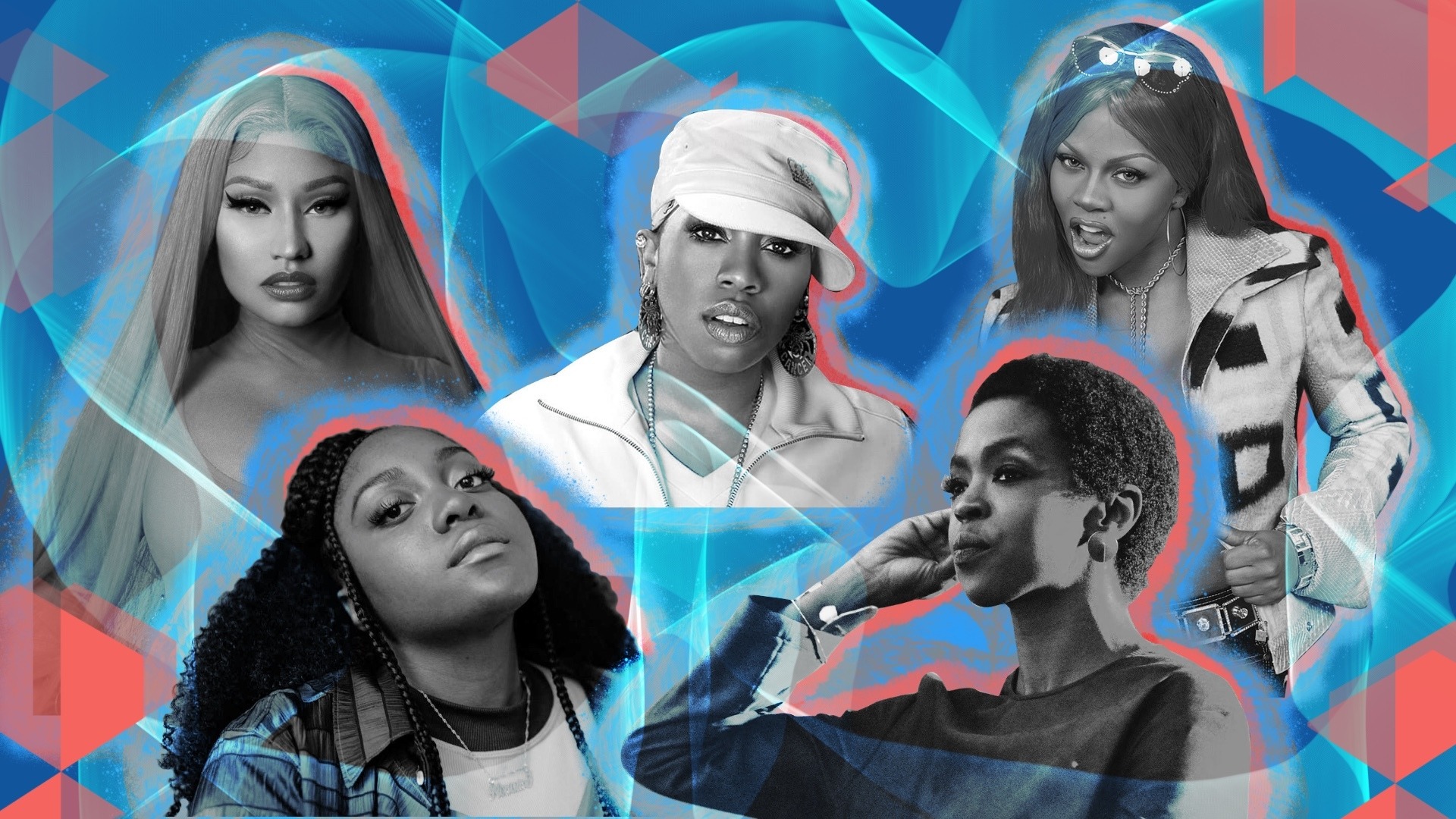In honour of Women’s History Month, RAC is spotlighting trailblazing women artists and producers who’ve left a lasting impact on the music industry. This week we’ll take a closer look at the groundbreaking contributions of five women to hip-hop. Despite facing challenges in a male-dominated industry, these artists have broken barriers, redefined the genre, and inspired future generations to follow in their footsteps. Here are 5 women pioneers who revolutionized hip-hop music.
Missy Elliott
Missy Elliott is a hip-hop visionary, known for her innovative sound and avant-garde music videos. She first gained recognition in the early 90s as part of the R&B group Sista, but it was her collaboration with producer Timbaland that really launched her career. Together, they crafted unique tracks blending hip-hop, R&B, and electronic music, like “The Rain (Supa Dupa Fly).” In 1997, Missy Elliott’s solo career took off with the release of her debut album Supa Dupa Fly, which featured the popular single “Work It.” Subsequent hits solidified her status as a hip-hop icon, with songs like “Get Ur Freak On” and “Lose Control” becoming instant classics.
Her work has earned her numerous accolades, including five Grammy Awards, and the title of first woman rapper to be inducted into the Songwriters Hall of Fame. Missy Elliott continues to inspire today’s top artists with her expressive delivery and clever word choices, which pushed the boundaries of what was considered “acceptable” for women to talk about.
Lil’ Kim
Lil’ Kim is a legend in hip-hop, recognized for her bold lyrics and fearless attitude. Rising to fame in the mid-90s, her debut album Hard Core was a critical and commercial success, featuring hits like “Crush on You” and “Not Tonight.” At the height of her career, she was one of most profitable artists on Bad Boy Records, the biggest rap label at the time, beating out many of her male peers.
One of Lil’ Kim’s major career milestones came with her “Lady Marmalade” collaboration for the Moulin Rouge! soundtrack in 2001. The song, featuring Christina Aguilera, Pink, and Mya, topped the charts worldwide and earned Lil’ Kim her first Grammy Award. Her unapologetic approach to sexuality and style set her apart from the get-go, paving the way for future female artists to express themselves freely and authentically.
Lauryn Hill
Lauryn Hill is celebrated in the hip-hop world and beyond for her incredible talent and powerful lyrics. Coming up as a member of the Fugees in the 1990s, Hill quickly established herself as a force to be reckoned with, bringing melodic rap to mainstream audiences. Her 1998 solo debut album, The Miseducation of Lauryn Hill, was a critical and commercial success, earning her five Grammy Awards, including Album of the Year. The lead single “Doo Wop (That Thing)” topped the charts, and the album set a record for being the first album by a woman to debut at No. 1 on the Billboard 200.
Lauryn Hill’s influence extends far beyond one genre – her introspective, soulful vocals resonate with audiences around the world and inspire songwriters to this day to speak their truth.
Nicki Minaj
Nicki Minaj is one of the most successful female rappers of all time, setting herself apart by her genre-versatility, charismatic presence, and witty and explosive verses. Gaining recognition in the late 2000s, she quickly became a dominant force in both hip-hop and pop with hits like “Starships,” and “Super Bass,” which blurred the lines of genre.
In a way, Nicki Minaj picked up the torch where Lil’ Kim left off with her unapologetic subject matter and open sexual expression in her lyrics. The artist has accumulated 132 chart entries on the Hot 100 and her influence is reflected in many top-charting artists today, including Doja Cat and Megan Thee Stallion. In addition to her musical achievements, Minaj has ventured into acting and solidified herself as a pop culture icon known for her daring fashion choices and outspoken personality.
Noname
Noname is a rising star in hip-hop, who’s already made a name for herself (pardon the pun) with her original style, thought-provoking lyrics and poetic delivery. Emerging from Chicago’s vibrant music scene, her introspective storytelling on songs like “Diddy Bop” and “Shadow Man” showcase her ability to blend jazz, poetry, and hip-hop into a modern sound all her own.
Her songwriting tackles themes of identity and social justice with depth, nuance, and unfiltered emotion. Noname demonstrates that rap music is so much more than the braggadocio people often reduce it to, and that success in the industry is achievable for artists outside of the mainstream. As she continues to evolve, her raw form of storytelling is sure to keep driving ahead the genre and inspiring rappers to be true to their unique voice.
Be sure to check out the previous article in our series: 5 Women Who Revolutionized Electronic Music.
Written by Maryse Bernard and Sir Louie
Illustration by Holly Li




















